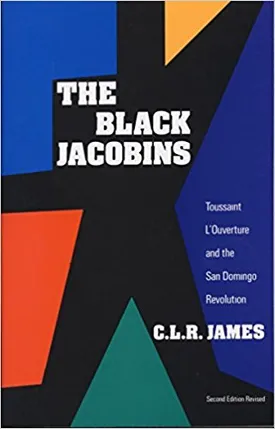C.L.R. James
C.L.R. James was an influential intellectual, novelist, activist and historian of the 20th century. He is best known for his pioneering works on the history of the African diaspora, identity and imperialism. He wrote an array of books discussing colonialism and the African experience in the western world, drawing attention to the effects of the British Empire on different cultures and societies.
Born in Trinidad in 1901, C.L.R. James, or Cyril Lionel Robert James, was raised by his father, an English-educated teacher who frequented lectures featuring prominent writers and intellectuals. As a result of his father’s influence, James developed a keen interest in literature and politics at an early age, reading works by Shakespeare, Plato and Rousseau. By the age of 18, James had taken up a job as a teacher of Physiology and Hygiene at the Government Training College.
In 1932, James left Trinidad for England, hoping to pursue a career as a writer. While in England, he worked as a journalist, writing articles for socialist newspapers and publishing his first book, a work of literary criticism called The Life of Captain Cipriani. James was a strong critic of both socialism and the British Empire. His critiques of the latter were deeply rooted in both the history and implications of colonialism, an issue to which he frequently returned.
In 1938, James relocated to the United States. While in the US, he became acquainted with black American writers like Richard Wright, Ralph Ellison and Langston Hughes, and joined a group of ex-slaves, who called themselves the African Blood Brotherhood. The African Blood Brotherhood provided James with an opportunity to further explore the issues surrounding the black experience. His work during this period was often overshadowed by the African American civil rights movement.
In 1953, James returned to the UK and began his most ambitious work, The Black Jacobins, which in many ways became his defining work. The Black Jacobins undertakes a thorough examination of the Haitian Revolution, in which James combines history and politics, emphasizing the importance of the different social and economic forces at play in the revolt against French imperialism. It is considered a seminal work in Caribbean historiography and was highly praised by some contemporary African leaders.
Throughout his works, James not only sought to challenge the status quo but to also place the marginalized voices and experiences of the oppressed at the center of the narrative. His vision of the world and the power of human agency in changing it is perhaps best expressed in his 1966 publication, Beyond a Boundary, which examined the role of sports in struggles of liberation and the power of culture to transcend boundaries.
Throughout his life, James held various academic and political posts, served as an editor for radical papers, wrote an array of books, and lectured in over 30 universities. His work remains widely read to this day, shedding light on the complexities of colonialism, class, race and identity. He has also been honored with numerous awards, from the Order of the British Empire to a lifetime achievement award from the Caribbean Studies Association.
James’ works can be seen as cornerstones of Caribbean and African diasporic studies, as his gripping prose brings to life the history of the African experience in the West and emphasizes the importance of culture, identity and politics in the construction of society. His oeuvre remains as influential and relevant today as when it first appeared, serving as a source of inspiration and thought-provoking discourse well into the 21st century.

